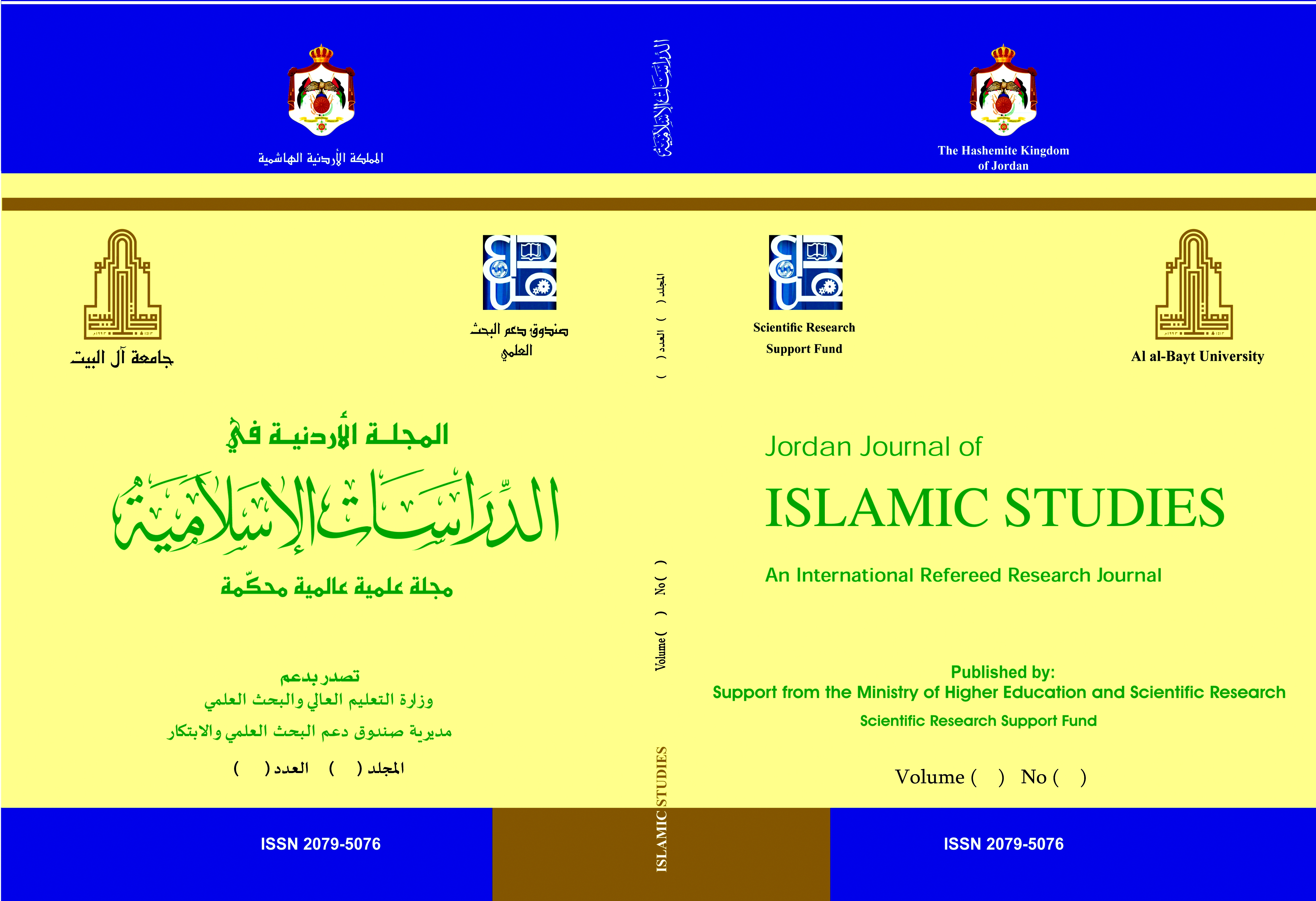Jordan Journal of Islamic Studies

Abstract
This study highlights the legal jurisprudential issue that arises in Sharia courts, derived from the provisions of the Journal of Judicial Judgements, which is a question of the "Oath of Invocation." It also examines the jurisprudential concept of fabrication, identifying the scholars who permit it, its relation to the concept of facilitation in Islamic law, the conditions for its application, its historical emergence, types, categories, and criteria. The study further highlights the application of the jurisprudential fabrication in Article 1746 of the Judicial Decisions Journal as practiced by the Journal of Judicial Judgements, discussing the necessity and justification for its application. Additionally, it explores the scholars who oppose its permissibility and clarifies the religious obligations regarding its application. The jurisprudential oath is then applied in the context of the "judgment against the non-concealing opponent" and supported by a series of appellate decisions related to the legitimate forensics oath in cases involving inheritance debts. Finally, the study concludes with key findings and recommendations.
سلطت هذه الدراسة الضوء على مسألة شرعية قانونية قضائية تجري في المحاكم الشرعية أصلت لها مجلة الأحكام العدلية، ألا وهي مسألة "يمين الاستظهار الشرعية"، وبينت وجه التلفيق الفقهي فيها من خلال بيان المقصود بالتلفيق الفقهي ومعرفة من قال بجوازه من الفقهاء، وعلاقة التلفيق الفقهي بمسألة يسر الشريعة وشروط العمل به، وتاريخ ظهوره، ونوعاه وأقسامه، ومظانه، ثم بيان وجه التلفيق الفقهي في المادة (1746) من مجلة الأحكام العدلية كما تجريها المحاكم الشرعية الأردنية، وبيان الحاجة إلى التلفيق الفقهي، وكشف مَنزِع جواز التلفيق الفقهي ثم بيان الواجب الشرعي تجاه إعمال التلفيق الفقهي، ثم تطبيق التلفيق الفقهي في يمين الاستظهار في قضية [ الحكم على الخصم غير المتواري] ودعم كل ذلك بمجموعة من القرارات الاستئنافية في يمين الاستظهار الشرعية في قضية الدين على التركة، ثم ختم الدراسة بأهم النتائج والتوصيات التي توصل إليها
Recommended Citation
Aljourneh, Osama; Hazaimeh, Hamza; and Amawi, Qais
(2023)
"Jurisprudential fabrication and Its Applications to the Oath of Invocation According to the Practice in Jordanian Sharia Courts التلفيق الفقهي وتطبيقاته على يمين الاستظهار وفق ما جرى عليه العمل في المحاكم الشرعية الأردنية,"
Jordan Journal of Islamic Studies: Vol. 19:
Iss.
3, Article 6.
Available at:
https://digitalcommons.aaru.edu.jo/jois/vol19/iss3/6

